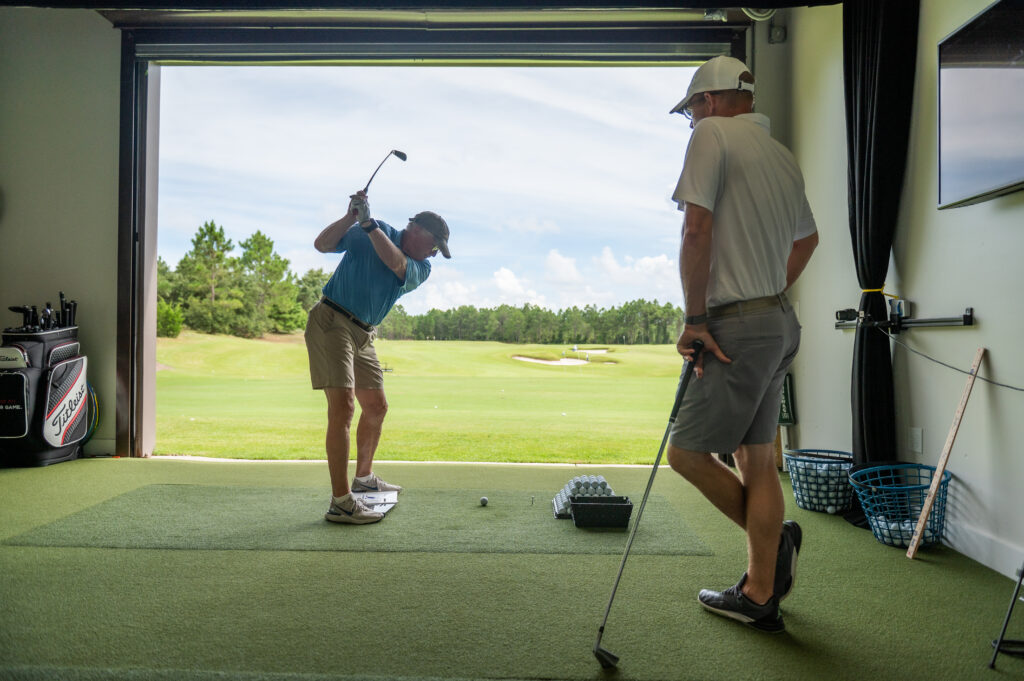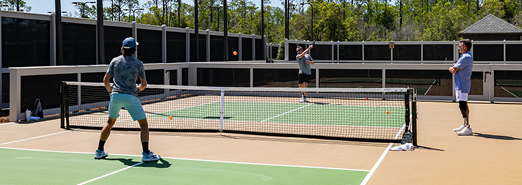Tips from the Pros – A Routine for Better Putting

Written by Ben Blalock, PGA Master Professional and Watersound Club’s Director of Instruction
Approach every single putt in the same manner, every time you play. The fastest way to improve your score on the course is to reduce the total number of putts used per hole played. While that’s obvious, the solution might not be as apparent. Regardless of the result, most of us move the putter functionally — it might not look like Ben Crenshaw, but it gets the ball rolling just the same. What we need to do is approach every single putt in the same manner, every time you play.
The elements listed below belong in your putting game. If you don’t already do these, consider adding one or all of them to your routine.
DIRECTION
The face is “king”
By this, I mean that nothing matters more than the angle of the clubface as to the direction your putt will roll. The “shape” of your stroke doesn’t matter; you might even have a “loop” in your stroke, but if the face of the putter is pointed in the right direction when it runs into the ball, your putt WILL roll where you mean for it to. Never forget this fact.
Use the line on your ball
Most golf balls these days are printed with a line of some sort on the cover. This is there to be used as an alignment aid, so use it. Before you putt, mark your ball with a coin, pick it up and replace it on the ground with the line aimed in the direction you’ve decided to play along based on your read of the green. Now stand up, and match the line on your putter to the line on your ball.
DISTANCE CONTROL
Practice strokes have a purpose, but there’s a method to it. Before you stroke your putt, step back from the ball just a bit and set up for a practice stroke. While making practice strokes, you need to focus your eyes either:
• Beyond the hole, for an uphill putt.
• Even with the hole, for a level putt.
• Short of the hole, for a downhill putt.
While keeping your eye on the selected location relative to the hole, make a series of continuous practice strokes. Just get the putter swinging back and forth without stopping its flow. Stay in motion until you feel confident that the amount of force you’re providing is appropriate. Never look down to the ball throughout this process, only at your selected point.
Once you’ve got it, look down to the ball and:
• Put the putter head behind the ball, matching the line on the ball to the line on the putter.
• Repeat the motion you made in your practice strokes, matching the size and the rhythm.
If you will practice these steps on a regular basis and learn to trust the outcomes, your putting will improve over time.


 Shop
Shop Beach Cam
Beach Cam Videos
Videos Request More Information
Request More Information































